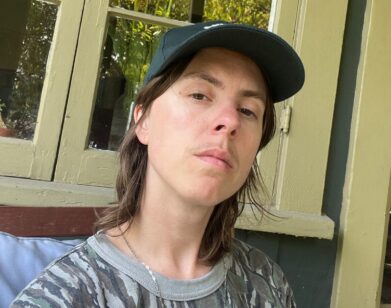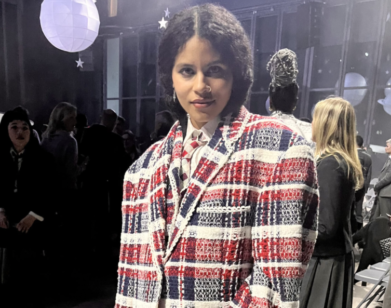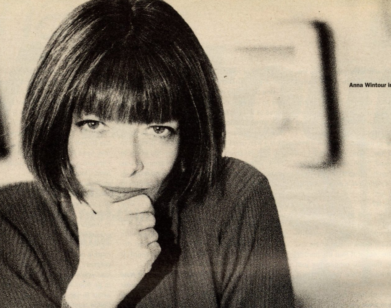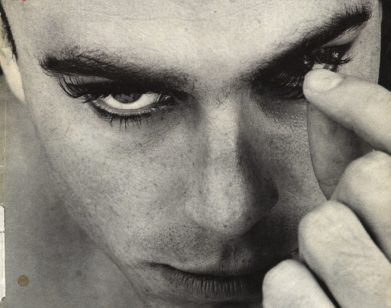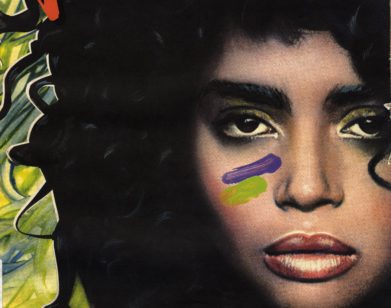Jay Som Is On a Joy Ride
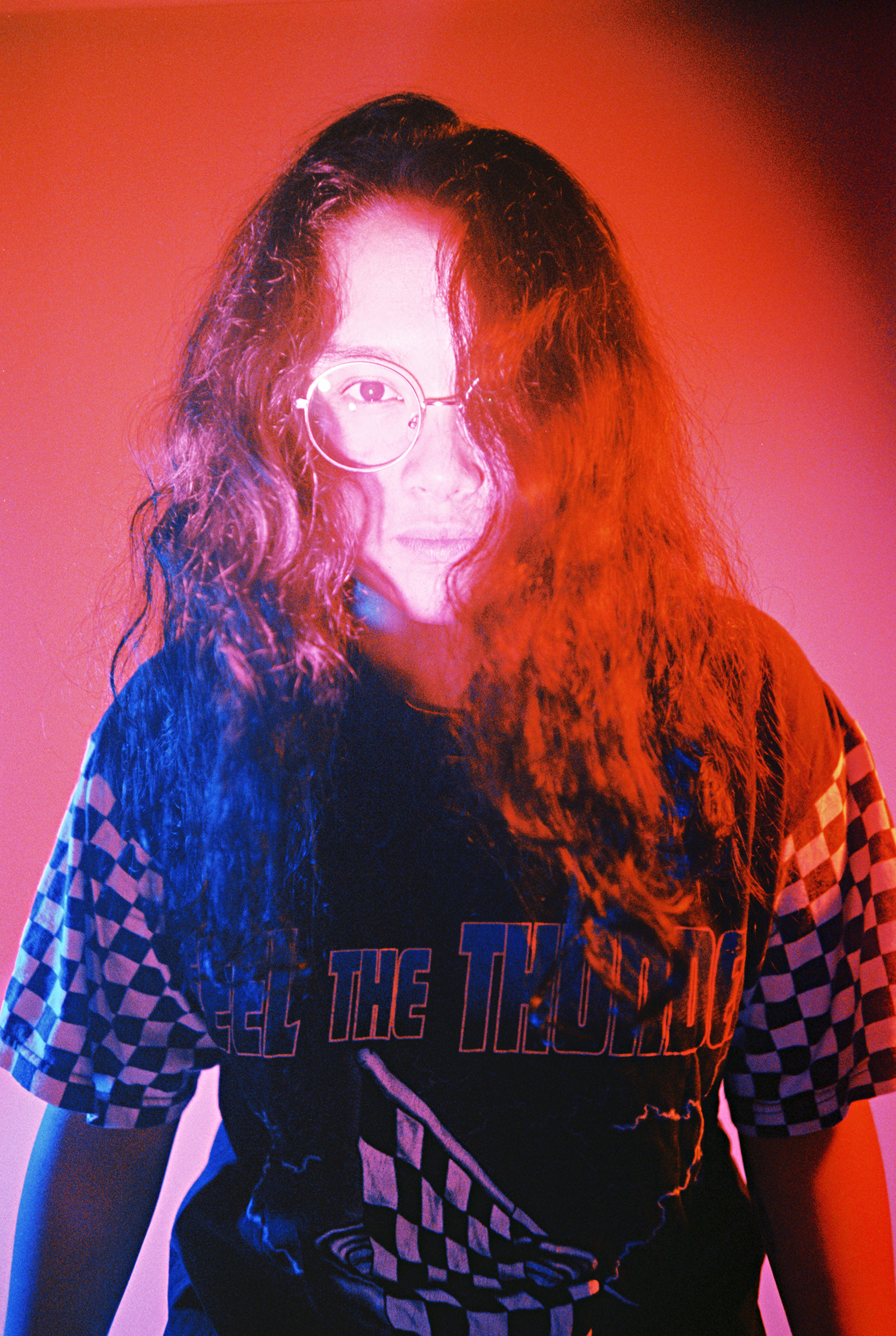
Perhaps no line better encompasses the ethos of Jay Som, the ’90s-inflected dream-pop project of Melina Duterte, than this one, found in the song “Nighttime Ride” off her new album Anak Ko: “Been watching hours pass inside cars with no glass, constructing shallow dreams of shoplifting at the Whole Foods.” It’s a perfect melange of late-capitalist millennial ennui and swirly-eyed optimism, its edges soft and its guitar hard. Anak Ko—which translates to “my child” in Filipino, her mother’s native tongue—is Duterte’s third album, a hazy, rollicking joy ride that’s best listened to in transit, preferably with the windows down. Born amidst a rare snowstorm in Joshua Tree, Anak Ko is the multi-instrumentalist’s first joined by her friends, among them Vagabon’s Laetitia Tamko and Annie Truscott of Chastity Belt.
“I was definitely thinking about family,” Som says from her home in Highland Park, Los Angeles. “I think that the overarching theme is just kind of nostalgia about family and relationships, but also, wanting to change and be a better person for yourself and for the people around you.” We caught up with the musician to talk the wide spectrum of human experience, from channeling vulnerability to wearing beanies to watching Gilmore Girls and, of course, shoplifting at Whole Foods.
———
SARAH NECHAMKIN: You had this pink cowboy hat on in the “Superbike” lyric video, and then you were also wearing a yellow beanie. Are you a hat person? Do you think that these hats embody different parts of your persona? Is there a yeehaw thing in there somewhere?
JAY SOM: I’m definitely a hat person. I’ve been wearing beanies my entire life, kind of like a safety blanket, but it also just feels good to wear beanies. Especially in the Bay area when I was there, you just wear a beanie all the time. The hat stuff didn’t start until I went on tour because you’re stopping at every single gas station ever, and they have cowboy hats everywhere all the time.
NECHAMKIN: I’ve heard that 7-Eleven sells them. Is that true?
SOM: Probably. Most gas stations sell cowboy hats. More so now than ever, because of Lil Nas X, probably. They’re really cheap and flimsy. Yeehaw.
NECHAMKIN: That yellow beanie reminded me of this character in the show Recess. Did you watch it growing up?
SOM: Yes. I get that a lot. She has a crazy voice and is really mean to people, right? A lot of people say I look like that character or PaRappa the Rapper, the dog in a beanie.
NECHAMKIN: You came up with the melody to that song during a snowstorm in Joshua Tree.
SOM: Yeah. It’s so corny, but it’s true. I went there for almost a week, and it’s the desert, so it was super isolated and quiet and beautiful. One day, I woke up, and I drew the curtains back, and it was a complete snowstorm. It was crazy. It was a rare snowstorm, too—it lasted literally only one day. At night, all the snow melted. It was super insane and inspiring.
NECHAMKIN: Do you actually ride a superbike?
SOM: No, I don’t. That’s just complete fantasy fiction.
NECHAMKIN: Have you thought about it?
SOM: I’ve always wanted to ride an actual motorcycle, just to go on one. Hopefully that happens within this year. Maybe a Harley-Davidson. That’d be really cool to cross off my bucket list.
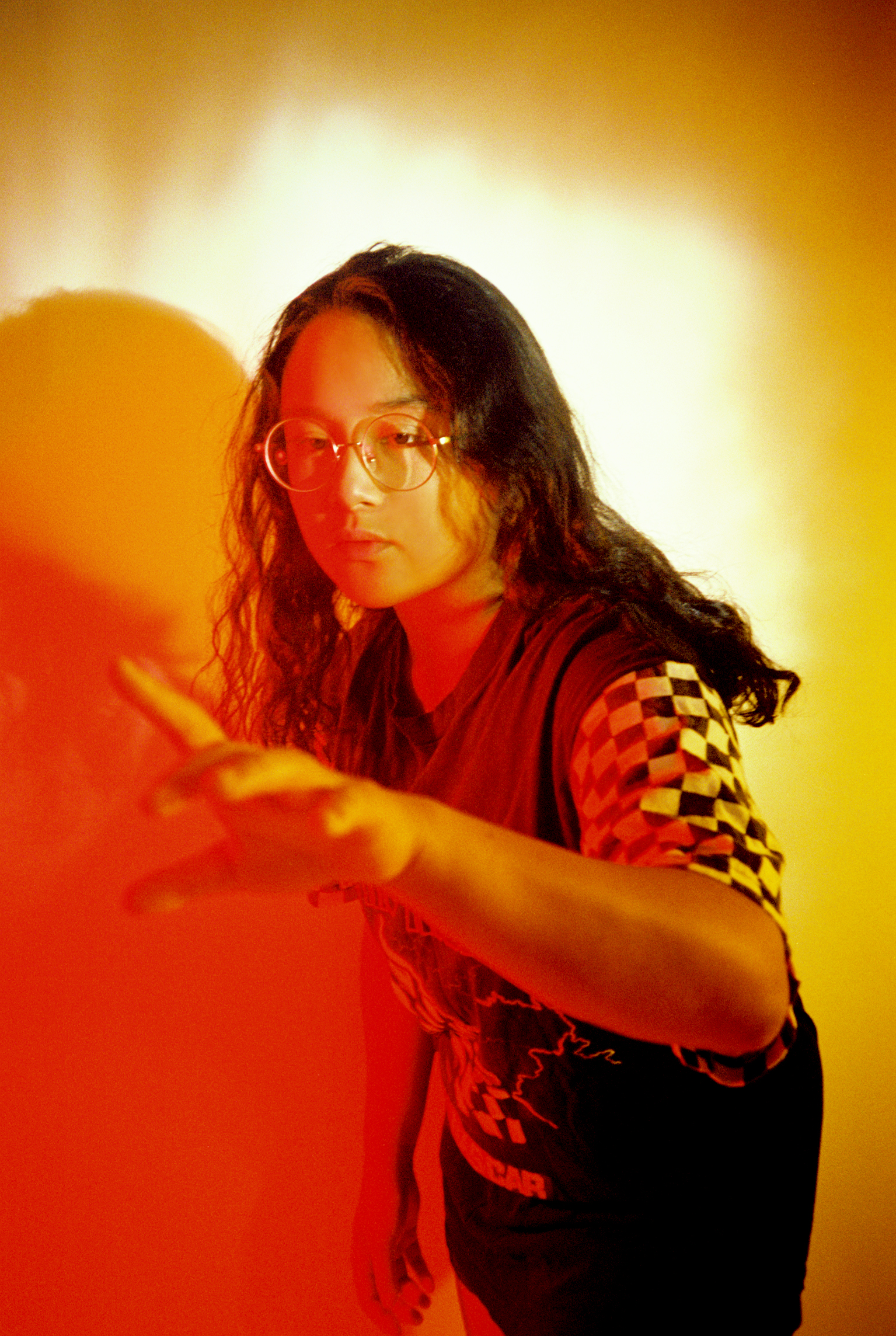
NECHAMKIN: They have this new service in Brooklyn and Queens where you can rent mopeds through an app. It’s become insanely popular.
SOM: That’s kind of wild.
NECHAMKIN: They have scooters out in L.A., right?
SOM: Oh my god, yeah. I still haven’t gone on them. I think I’m a little too scared because apparently they go 15 miles per hour, which is super fast. I kind of feel like it shouldn’t be allowed. People don’t wear a helmet, and they’re always just thrown everywhere, like in the middle of the sidewalk. It’s kind of annoying. There are just so many kids on scooters.
NECHAMKIN: Your work is often described as dreamy. Do you have a lot of dreams yourself?
SOM: I feel like over the years, I’ve been dreaming less, and when I do get dreams, they’re so nightmarish, just too much. I think I had a dream recently where all of my friends were in a circle, and they were just saying really terrible things about my character, and I was crying, and I woke up, and I was like, “Was that real? Did that actually happen?” A lot of it’s just about the people that are closest to me hating me, but I think that’s probably just my subconscious. I’m really self-conscious about how I’m perceived by people. A lot of dreams are just so visceral about what I’m going through right now. They’re never really crazy, freaky alien dreams or anything.
NECHAMKIN: That’s so much scarier than being chased by a clown or whatever. That’s scary too. But dreams have a way of revealing and exaggerating some of our darkest and most visceral feelings. I can relate to that a lot—the fear of how people perceive you, even during interviews, whether this person just doesn’t want to be talking to me right now. But it’s at a whole different scale when you’re in the public eye. Your music is completely an extension of what you’re feeling. How do you reconcile that tension between putting yourself out there and forming a persona while also honoring what you’re feeling?
SOM: I think it’s just about recognizing that being vulnerable is okay, and I think it’s really important to show the real side of yourself if you want to. That’s the cool thing about music: you can choose to retain certain parts of your privacy and your personal life and your music life, and you can choose to write about your life if you wish or manipulate it into a story.
NECHAMKIN: There’s definitely a sentimentality to the record, with the title translating to “My Child” from Filipino.
SOM: I was definitely thinking about family. I think that’s the overarching theme is nostalgia about family and relationships, but also, wanting to change and be a better person for yourself and for the people around you. I think I had to really think about patience, about my kind of definition of patience and how I can exercise it more frequently.
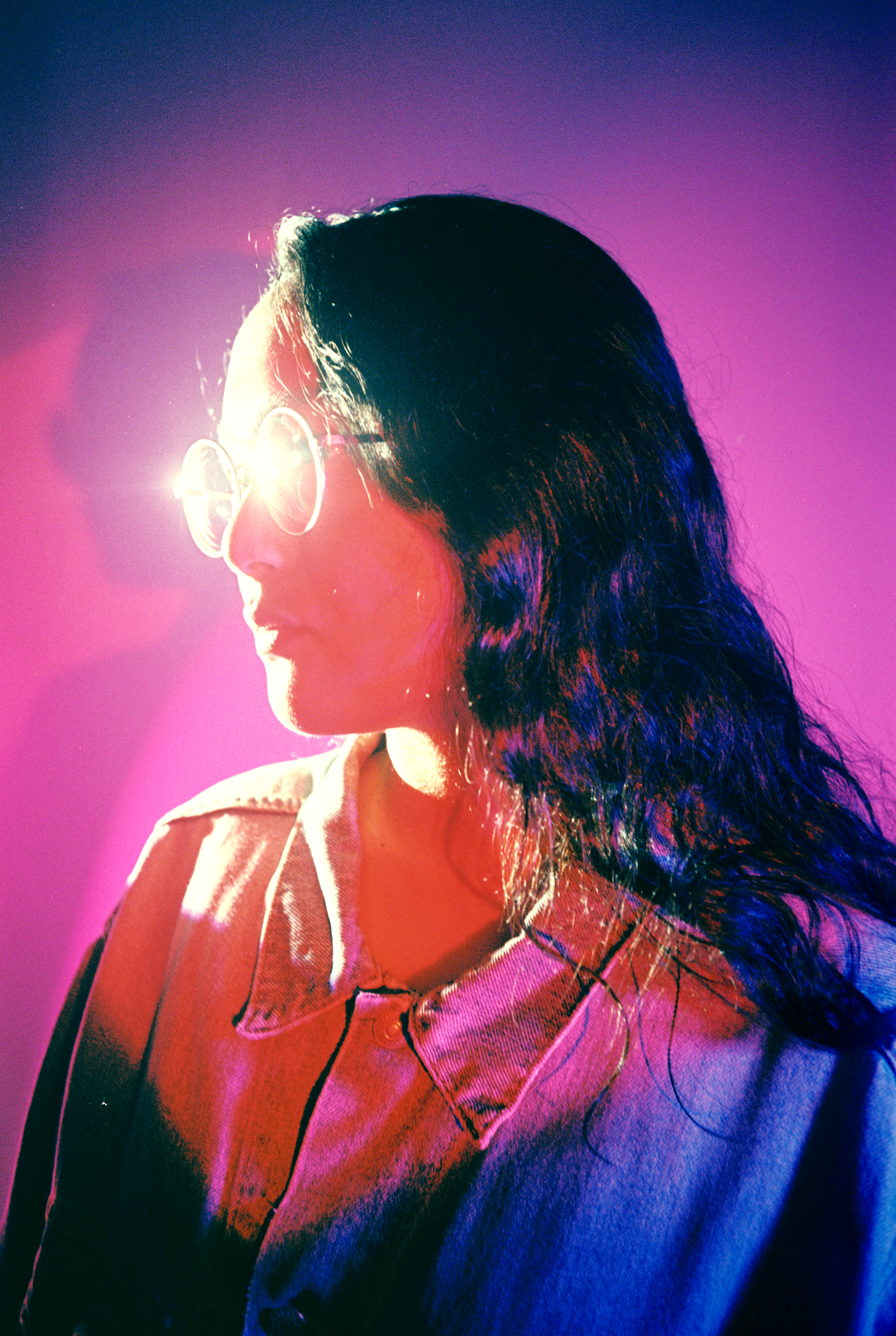
NECHAMKIN: I keep thinking about this line in “Nighttime Drive”: “Been watching hours pass inside cars with no glass, constructing shallow dreams of shoplifting at the Whole Foods.” What are you dreaming of shoplifting at Whole Foods?
SOM: [Laughs.] Literally everything is so expensive at Whole Foods. Definitely the salads, the hot bar food. I’m a little tired of paying $20 for a salad. Sometimes it’s worth it, sometimes it’s not. Probably also the really good shampoo and conditioner.
NECHAMKIN: The ’90s aesthetic is very prevalent in your work. You’ve mentioned Alanis Morissette as an influence, and your videos have this sort of DIY thing going on. Were you conscious of that, or was it more just by virtue of the fact that the ‘90s are still very much a part of our collective cultural sphere, especially within the realm of indie music?
SOM: I’m pretty conscious of that just because I think it’s undeniable that my generation, and even earlier generations now, are super influenced by ’90s stuff. You’re basically a product of what you grew up with or what decade you’re born in, and I feel like when you make music, it’s hard to get away from that. Music that was on the radio really seeps into your songwriting and your musical taste. I just love the ‘90s music too much, especially since it’s so guitar-based. That’s my main main instrument right now, so it makes sense that I write music around the guitar.
NECHAMKIN: I think people are inevitably nostalgic for their childhood, and maybe they’re overwhelmed with the pace of things right now, and the ’90s were sort of a simpler time when the internet wasn’t with us every day at all times.
SOM: Oh, for sure. Social media can be extremely overwhelming for kids now, and back then, it was all about AIM and MySpace and just talking to your crush. Now it’s like, you’re hella comparing yourself with other people, which I’m sure is super detrimental to a lot of kids. But I also feel like a lot of kids are super intelligent and woke now, really into mental health and positivity. I think they have it pretty good now.
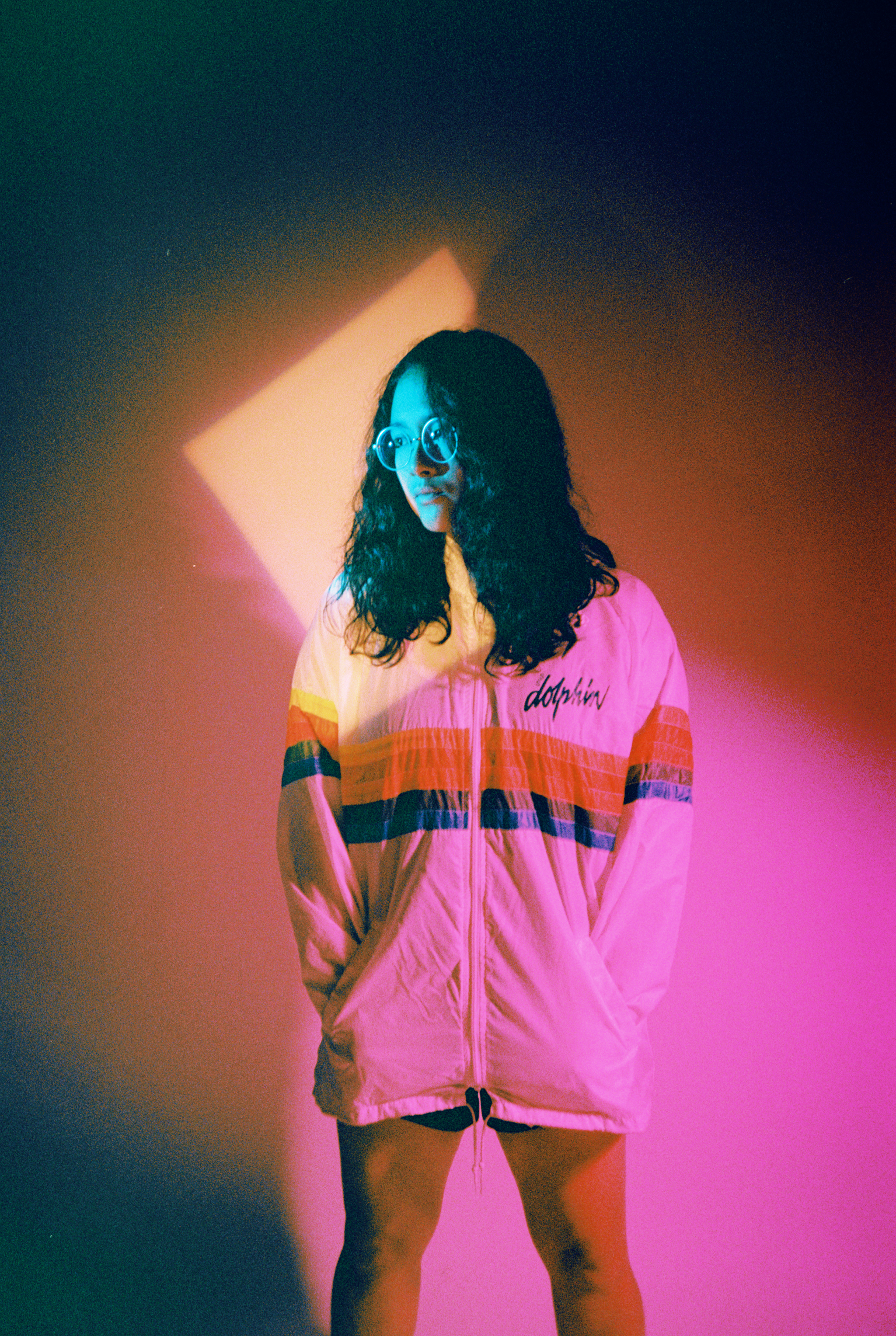
NECHAMKIN: The video for “Nighttime Drive” is super ’90s. What’s your relationship to ‘90s movies?
SOM: There’s definitely an X-Files thing there. I love the fashion of ‘90s movies. I love the swoopy hair and the really terrible one liners and sassy attitudes. I keep thinking of My So-Called Life and Dawson’s Creek, in terms of TV shows. Empire Records was really good. I love that movie.
NECHAMKIN: My roommate made me sit down and watch Buffy the Vampire Slayer recently. It’s full of one-liners.
SOM: Oh my God. I should start watching it. I was more of a Gilmore Girls fan.
NECHAMKIN: There’s that snippet of the alien hula-hooping in the video, and I think it’s my favorite thing I’ve seen this week.
SOM: I know. A lot of people love it. She did an incredible job.
NECHAMKIN: I feel like it’s unaware of us since we’re sort of watching it through the green surveillance filter, but then it’s also kind of performing for us at the same time. It’s so deliberately over the top. Have you thought about it’s backstory?
SOM: Yeah. It’s probably a non-binary alien for sure. A lot of people are saying it’s an NB alien. I think that alien is just trying to have a good time at the labyrinth, at the alien crop circle, just hula-hooping. It’s just minding its own business. So who knows?
NECHAMKIN: It’s an inspiration. Living its best life, as the kids say. Do you think that there are aliens out there?
SOM: For sure. I think to reject the idea that there are living things in the universe, considering how big it is, that’s kind of insane to think that. They’re definitely out there. I think they’re watching over us for sure—not to get all Tom DeLonge on you.


